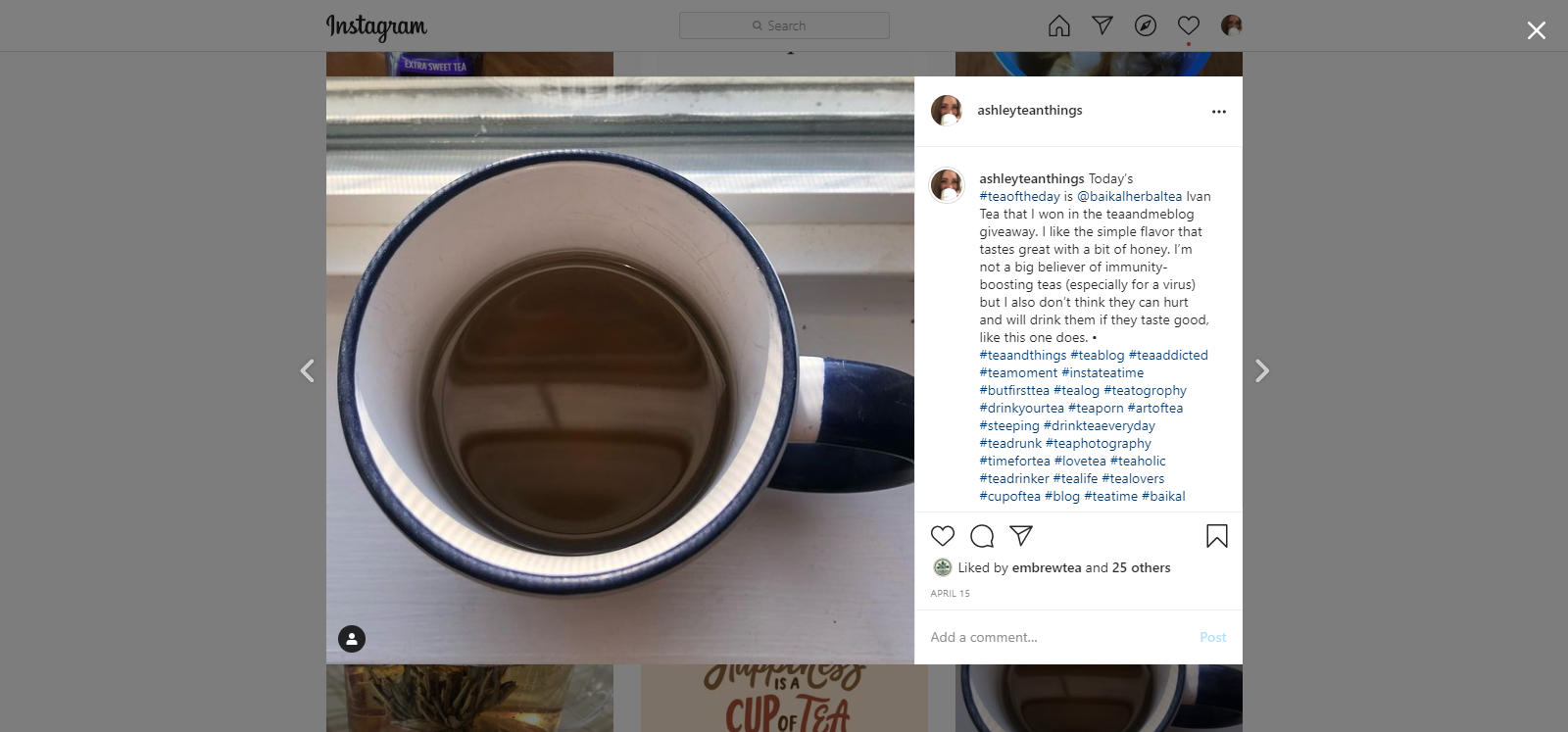Drug-Nutrient Interactions with Tea
I am a big proponent of a more holistic approach to health and wellness. But, I also can’t ignore that some nutrients, particularly herbs, can actually be dangerous for certain health conditions—especially if you are taking medication. I know many people use tea to help manage various health conditions, so I decided to look into some common tea ingredients that may have harmful drug-nutrient interactions.
Please talk to your doctor for more information about specific drug-nutrient interactions and if they are a concern for you.
General Drug-Nutrient Interactions with Tea
Before I get into specific tea ingredients, I want to note a few interactions with tea itself. First, increased caffeine intake can increase the adverse effects of Ritalin (a stimulant often used to treat ADHD and narcolepsy), including nervousness, tremor, and insomnia. While tea generally has less caffeine than coffee, it is important not to drink too much caffeinated tea if you take Ritalin.
Another important note is that MAOIs (monoamine oxidase inhibitors, sometimes used to treat depression, panic disorder, and social phobia) interact negatively with certain tyramines that are found in fermented foods. In my research, I have seen aged cheese and meat, sauerkraut, soy sauce, and tap beer mentioned as being dangerously high levels of tyramines. I have not seen kombucha or other fermented teas mentioned at all, but it worth asking you doctor about if you take a MAOI and drink fermented tea frequently.
Finally, the absorption of Fosamax (used to treat or prevent osteoporosis) is decreased by drinking tea, among other liquids and taking certain supplements. You should wait at least 30 minutes, but preferably one to two hours, after taking your medication before drinking any tea.
Drug-Nutrient Interactions with Tea Ingredients
Probably the most well known drug-nutrient interaction is grapefruit with high blood pressure and cholesterol medications. I don’t know many teas that include grapefruit, but there are definitely some, so this interaction is worth mentioning. Grapefruit also interacts with some antiarrhythmic, anticonvulsant, and immunosuppressive medications.
Next, we have echinacea, a common ingredient in immune-boosting teas. It’s immune system-boosting properties can interact with the immune system-suppressing drug cyclosporine, which is used to prevent organ rejection after transplant, as well as treat rheumatoid arthritis and psoriasis.
St. John’s Wort is an herb commonly taken to help with depression, and is sometimes added to teas for this purpose. However, it can increase the breakdown of many drugs, therefore decreasing their effectiveness.
Finally, a fellow tea blogger brought to my attention the interaction between moringa and levothyroxine, a medication used to treat low thyroid function. She has previously heard that it was great for thyroid function, so I decided to look into it. From my research, it seems that moringa may help regulate hyperthyroidism, or an overactive thyroid, by reducing the concentration of the T3 hormone in the body. On the other hand, those with hypothyroidism already have low levels of T3, so they would not want them to be lowered anymore. Additionally, moringa may indeed decrease the absorption of levothyroxine, making it ineffective. In my research, I discovered that moringa may also have moderate interactions with medications for high blood pressure and diabetes, as well as those that are broken down by the liver including lovastatin (Mevacor), ketoconazole (Nizoral), itraconazole (Sporanox), fexofenadine (Allegra), and triazolam (Halcion) to name a few.
I have just scratched the surface of drug-nutrient interactions, but I hope I covered the main ones that may be of concern for tea drinkers. Leave a comment below if there are any others you would like me to look into and I can do my best to find information for you. And, again, be sure to talk to your doctor or prescriber for more details about drug-nutrient interactions.
—
Like this article? Read more like it here:
NOTE:
I am not yet a Registered Dietitian and am therefore not certified to give nutrition counseling. Please consult your doctor or other healthcare provider before following the advice in this article.
References:
Tahiliani P, Kar A. Role of Moringa oleifera leaf extract in the regulation of thyroid hormone status in adult male and female rats. Pharmacol Res. 2000 Mar;41(3):319-23. doi: 10.1006/phrs.1999.0587. PMID: 10675284.

